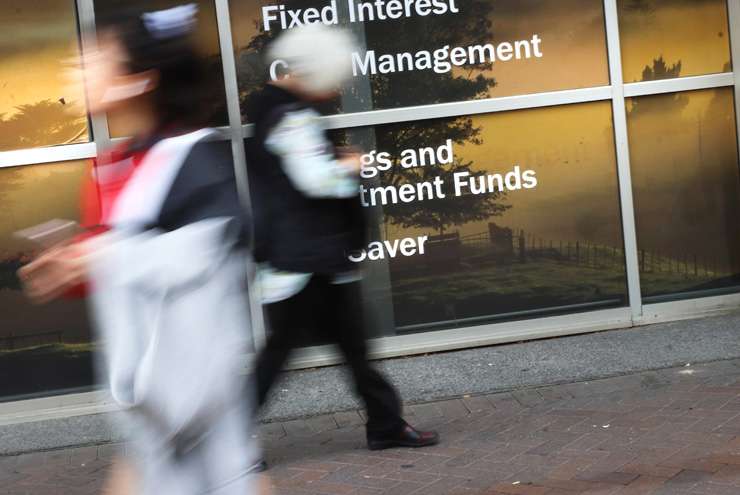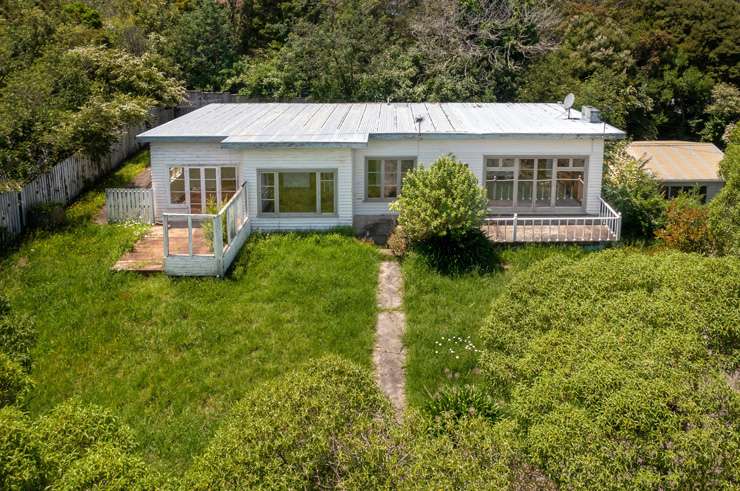Mortgagee sales are not common in this country but more are on the cards in 2023 as people come under increasing financial hardship.
Banking ombudsman Nicola Sladden says her office is preparing for an increase in complaints and urges people who might get a letter from the bank not to put their heads in the sand.
“We realise a lot of New Zealanders are facing financial challenges and we would encourage anyone who is struggling financially to immediately contact their bank and to explain their circumstances and seek the bank’s suggestions or help.”
There are also free financial mentoring services and budget advisers that are available and can help people, she says.
Start your property search
It’s better to find a solution other than a forced sale because the mortgagee sale process is a long and painful one which can have debt obligations that go beyond the house being sold.
While banks are legally obliged to try to get a good price for the property, Sladden points out they are not obliged to wait until market conditions improve before they sell.
In some cases, the sale of the house may not cover all the debt incurred and a worst-case scenario is bankruptcy.
Sladden says banks don’t want mortgagee sales any more than the owners.
The first step in the process is a call or letter from the bank when payments are missed - the advice every step of the way is to be open and honest with the bank.
The bank will likely ask for a statement of position, Sladden says. This usually details income and expenses and gives the bank an indication of whether the person can afford to continue to pay out the debt or enter into a repayment programme, or alternatively look at other ways to try to protect the property and the person’s personal situation.
If the person does nothing, the bank will issue a letter of demand. That sounds scary and a letter of demand is challenging and stressful, Sladden says.
“It’s quite understandable that people put their heads in the sand when they receive these letters.
“We would strongly discourage that and encourage people to talk to their bank and discuss what amounts they can pay and when and what the options are to avoid any further action, because the next step if they don’t cooperate is a formal notice under the Property Law Act.”
If someone has got to this point the situation is very serious but even now they can still talk to the bank about possible repayment arrangements.

Banking ombudsman Nicola Sladden says homeowners who are struggling with payments should talk to their bank as quickly possible. Photo / Doug Sherring
It’s important to know, though, that at each step of the way there are additional costs being incurred, and potentially penalty interest costs and also legal costs associated with the proceedings.
Sladden again says people should get some other support, such as from a financial mentor or budget adviser and while engaging a lawyer is a good idea, not everyone undergoing the process can afford to do that.
“When someone's in a financially difficult position it's the last thing they can afford to do.”
People can contact the Banking Ombudsman’s office for guidance, she says, “however, our general advice is to support them to speak openly and honestly with the bank about their situation.”
Sladden says the mortgage and lending documentation with the bank sets out the fees and charges but it’s not unusual for costs to increase.
The customer ultimately bears the costs which are added to the debt and these costs can effectively erode any equity.
Added to this is the potential for embarrassment because the bank can apply to the courts to serve the formal notice under the Property Law Act, such as by taking out a public notice in a newspaper.
“That’s why it's better to avoid a forced sale situation because it creates a perception you might be able to pick up the property at a discounted price.”
Again, even at this stage people can still talk to the bank about sorting the situation out, she says.
But if the person does not and fails to pay by the due date, does not comply with the letter of demand or with a Property Law Act notice, the bank can take steps to sell the property.
Banks are obliged to take care to get the best price reasonably obtainable at the time of the sale and that usually includes getting a registered valuation, which gives an indication of the expected sale price, and appointing a real estate agent to market the property – the bank is not allowed to conduct a fire sale.
The “best price reasonably obtainable at the time of the sale”, however, means the bank doesn’t have to wait for more favourable market conditions when selling, says Sladden.

Banks can take steps to sell your property if they have exhausted all other options. Photo / Getty Images
“We've had cases in the past where someone has said they should have waited for the market to rebound but the bank is under no obligation to hold off for a certain period, it's at the time of the sale they need to get the best price reasonably obtainable.”
The whole process can take months, if not years sometimes, to get to the final step. People are often hopeful of their financial position changing for the better and there are continuous discussions and negotiations.
But even once a property is sold the pain is not necessarily over for the customer.
“It's not the situation where you could just give the bank the keys of the house and walk away from your debt - customers remain liable for the debt to the bank as well as all the costs associated with the property, such as rates and insurance.”
If no agreement can be reached about the repayment of remaining debt the bank can continue to take recovery action against the customer personally and that could result in bankruptcy.
Sladden says the biggest reasons for mortgagee sales are because of lost employment or significant health reasons which prevent people from keeping their payments up: “It’s a really sad situation, absolutely.
“We are expecting more complaints from people who are experiencing financial difficulty and our strong advice is the earlier they make contact with the bank the more likely it will be able to offer help and some of these more drastic actions can hopefully be averted.”
Real estate agent Steve Stone, from Ray White, has dealt with recent mortgagee sales involving developers who were caught up in the frenzy of buying land in 2021.
A house on Margate Road, in blockhouse Bay, Auckland, which sold for $1.056m in December, had resource consent for terrace houses but went to a young couple after a mortgagee sale.
Usually, mortgagee sales go to professionals as there can be risks attached to buying a forced sale property, says Stone.
The house is usually being sold against the owner’s wishes and sometimes the owner prevents people – even the agents – from looking through and that also prevents a building inspection.
The owners might also strip the house of chattels before settlement, right down to the kitchen and the bath.
Stone says unlike usual sales chattels are not included in the contract, and neither is there a guarantee of vacant possession if the property is tenanted.
Sometimes owners trash the interiors purposefully and while it might seem counterintuitive to do so emotions can take over.
“House ownership in New Zealand is pretty emotional, we all believe we're entitled to have our own house so I guess when it's taken away...”

This property on Margate Road, in Auckland’s Blockhouse Bay, recently sold at a mortgagee sale for $1.056m. Photo / Supplied
Another risk is the owner repaying the mortgage before settlement which can sometimes make a sale null and void, depending on the contract
Stone says banks do lend to people wanting to buy a mortgagee property but expects there would be careful risk assessments around loan to value ratios.
For someone in financial difficulty, he advises they sell the property themselves before heading down the path of a mortgagee sale.
“Selling your house under any circumstances is pretty stressful so having on top of that someone else selling it against your wishes, man.”
Stone says the main reasons for forced sales are loss of income and interest rates that go too high for someone to be able to keep servicing the mortgage, and says with so many mortgages on fixed rates due to come off in 2023 there will likely be some fall out.
“People need to be aware that if they get in trouble they need to take some action - don't hide.”
Cameron Marcroft, senior mortgage adviser with Loan Market, says when the market is down sometimes the debt level can be higher than the value of the property once agents’ fees are taken off.
He, too, says it is critical customers keep the bank informed of their situation, or talk to their mortgage adviser.
“The ones that are in trouble are the ones that are probably not ringing us, unfortunately.
“The ones I have no concern about are calling me and going ‘geez, Cameron, I'm worried about this’. They are the ones that are looking at it, organising themselves, trying to adapt, evolve.”
Marcroft looks first at someone’s budget and if the situation cannot be managed the bank will be approached for interest only repayment options, with the next option a repayment holiday.
A repayment holiday is usually for three to six months but means the interest is compounding onto the mortgage later on so while not a great result it gives some breathing space.
Marcroft says most people will do anything they can to avoid missing mortgage payments: “You’ll find clients will generally get rid of other stuff before they get to that stage.”











































































